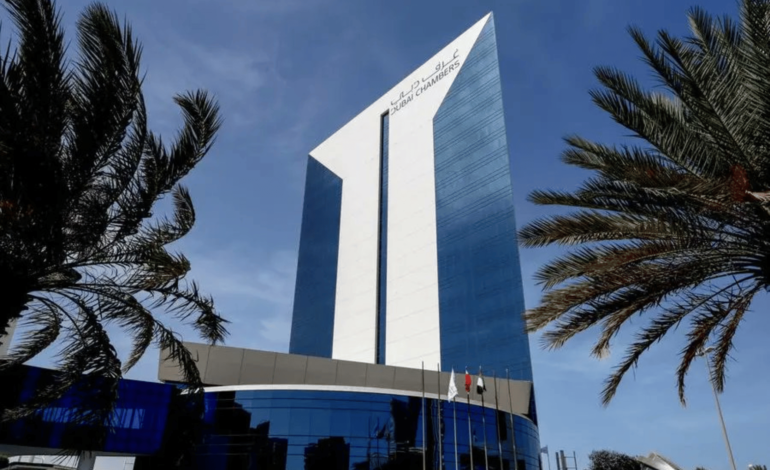Dubai Chambers recently conducted six impactful legal workshops, both in-person and online, aimed at enhancing legal awareness and compliance among private sector businesses. These sessions addressed key areas such as artificial intelligence, cybersecurity, labour laws, virtual assets, and corporate governance. With expert guidance from legal professionals, the initiative provided practical support to over 280 participants, reinforcing Dubai’s commitment to a transparent and efficient business environment.
Dubai’s rapid economic growth and ever-evolving legal landscape require businesses to stay well-informed and agile. Recognizing the importance of legal compliance and governance in today’s dynamic market, Dubai Chambers has taken a bold step by organizing a series of legal workshops aimed at guiding businesses toward better regulatory alignment. These workshops were designed not only to provide theoretical legal knowledge but also to offer actionable insights that companies can implement immediately to enhance compliance and mitigate risk.
Empowering the Private Sector
Across six carefully curated workshops held both in physical venues and through online platforms, more than 280 participants from various sectors gathered to strengthen their understanding of UAE business law. These participants included legal advisors, compliance officers, HR professionals, business owners, and senior executives—each seeking clarity on current legal challenges and solutions.
What made these workshops stand out was their highly practical nature. Rather than focusing solely on dense legal jargon, the sessions emphasized real-world scenarios, case studies, and recent legal updates that directly impact companies operating in the UAE and wider region.
A Deep Dive into Critical Legal Topics
Each workshop was centered on a critical area of business law, ensuring a wide coverage of key compliance concerns.
Artificial Intelligence and Intellectual Property
One of the most talked-about sessions revolved around the intersection of AI and intellectual property rights. With artificial intelligence systems now generating music, text, art, and even software, legal experts guided participants through the complexities of who truly owns AI-generated content. The session addressed how existing IP laws are being interpreted to fit AI technologies and what this means for innovators and businesses using AI tools in their operations.
Cybersecurity Regulations
As cyber threats grow more sophisticated, governments worldwide—including in Dubai—are tightening regulations on how companies store, protect, and manage digital information. This workshop provided a detailed breakdown of cybersecurity laws applicable in the region. Participants learned how to align their internal systems with Dubai’s cybersecurity strategies and what penalties they might face in the event of non-compliance. The discussion also touched on data breaches, incident response plans, and protecting sensitive customer information.
Labour Law Essentials in the UAE
Another important session focused on UAE Labour Law—an area of daily relevance for HR departments and business owners. The workshop covered everything from visa processes and recruitment requirements to employee rights, benefits, termination procedures, and dispute resolution. Special attention was paid to recent changes in labour legislation and how they influence hiring practices, especially in the post-pandemic context. Attendees left the session better equipped to manage their workforce within the boundaries of the law.
Virtual Assets and Regulatory Framework
With Dubai quickly emerging as a hotspot for fintech and blockchain companies, understanding the legal framework around virtual assets has become essential. This session explored the licensing requirements for virtual asset service providers and the role of the Dubai Virtual Assets Regulatory Authority. Experts walked attendees through the compliance expectations for crypto-related businesses and explained how to remain legally sound while innovating in this fast-paced industry.
Corporate Governance, Risk, and Compliance (GRC)
Corporate governance has always been the backbone of ethical and sustainable business. This workshop gave participants the tools to strengthen their governance structures and establish effective risk management frameworks. Discussions included how to maintain transparency, develop internal control systems, and ensure responsible decision-making across departments. Participants were also introduced to compliance best practices that could be customized to their organization’s scale and industry.
Updates on Securities and Commodities Authority (SCA) Regulations
Public joint-stock companies in particular benefited from this workshop, which offered insights into the latest regulatory updates from the SCA. The focus was on internal audits, risk management strategies, and how to align with enhanced corporate governance standards. The session aimed to prepare companies for tighter scrutiny while helping them maintain investor trust and operational integrity.
Hands-On Learning with Legal Experts
What truly added value to these sessions was the level of expertise brought in by Dubai Chambers. Experienced lawyers, legal consultants, and corporate advisors were invited to lead each topic. Their hands-on experience in dealing with real business cases allowed them to answer specific queries and tailor advice based on the industries present.
Workshops were conducted in interactive formats—participants engaged in Q&A segments, discussed practical scenarios, and even received summary documents and legal checklists for future use. The hybrid format (both in-person and virtual) ensured maximum reach, allowing even small businesses and start-ups to participate without logistical constraints.
Strengthening Dubai’s Legal and Business Infrastructure
This initiative reflects a broader vision of making Dubai one of the most business-friendly cities in the world. By hosting regular educational programs like these, Dubai Chambers is actively contributing to a culture of compliance and accountability. Instead of reacting to legal risks after the fact, businesses are being encouraged to take a proactive stance—preventing issues before they arise.
Furthermore, these sessions play a crucial role in building trust between the public and private sectors. When companies are confident in their legal knowledge, they are better equipped to make informed decisions, protect their stakeholders, and contribute positively to the local economy.








